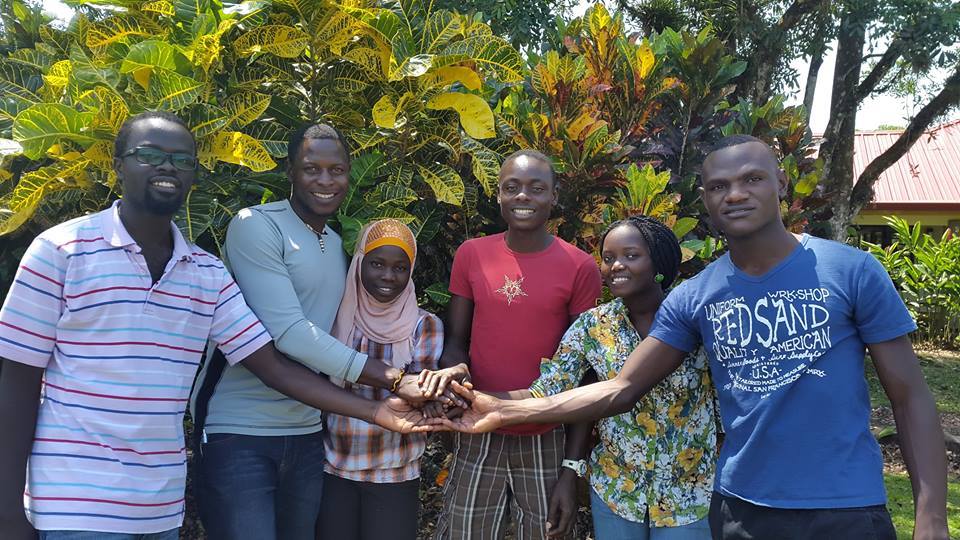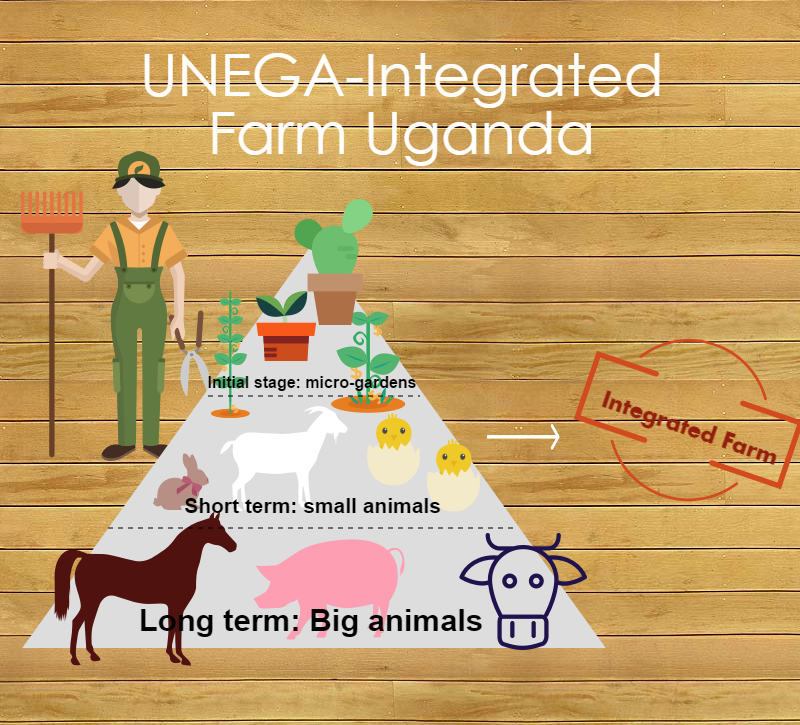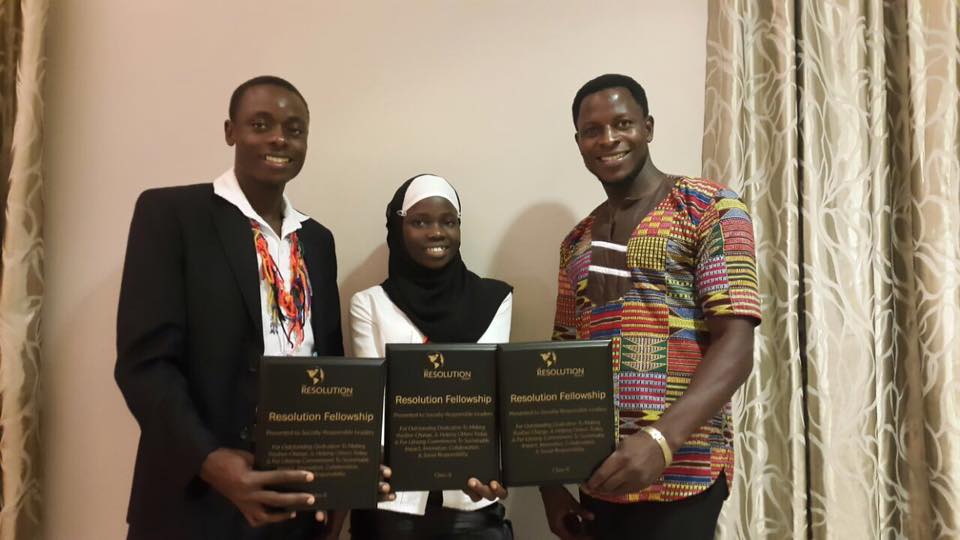Closing Cycles: UNEGA Integrated Farm Uganda

Tom Okot (’18, Uganda), Paul Mukuye (’16, Uganda), Fatumah Birungi (’17, Uganda), Alex Kyeyune (’18, Uganda), Caroline Akampa (’16, Uganda) y Christopher Mujjabi (’17, Uganda). Photo: Facebook/UNEGA
What will I do after I graduate? What will my job be after I leave University? Will I be able to find something? With all of these questions in mind, Ugandan EARTH Students decided to end their uncertainty by developing an action plan as a group that provides them with something concrete to accomplish after graduation.
UNEGA- Integrated Farm Uganda is an urban agriculture project created by Tom Okot (’18, Uganda), the MasterCard Foundation Scholars Alex Mukiibi (’15, Uganda), Agil Katumanyane (’15, Uganda), Paul Mukuye (’16, Uganda), Caroline Akampa (’16, Uganda), Fatumah Birungi (’17, Uganda), Christopher Mujjabi (’17, Uganda) and Alex Kyeyune (’18, Uganda).
This year they participated in the Social Venture Challenge (SVC) and reached the finals in Ghana where they were awarded the funding needed to implement their idea.
Like the winners of Wege Prize KYCE, UNEGA also competed for the Hult Prize, where they reached the final stages in San Francisco, but did not win any awards. Undeterred, the group decided to enroll their team in the SVC where they competed against 200 teams (comprised of more than 200 students from around the world), and finally were chosen as one of the five winning projects.
According to Fatumah, UNEGA “is an urban agriculture project. We do microgardens that can be replicated in villages. Short term, we want to incorporate small animals such as chickens and goats, and also make a greenhouse to produce vegetables. We want to introduce a technique that integrates animal waste with the greenhouse. Long term, we want to incorporate large animals such as cows and pigs. The idea is to make an integrated farm that uses everything it produces, including waste, for its own benefit.”
The integrated farm will be installed in Wakiso, one of the largest cities in Uganda, where most of the people who work in the capital live.
As part of the prize, Alex, Fatumah, and Paul (who presented the project for the SVC) will be trained for three years in all areas of the project implementation from administration to finance.
They will be given funds to start the project. “If you prove that the project operates well and that you can do it correctly, there is no limit to the amount of money they award. But you must justify what you want and show that you can implement it.”
In return, the students will work as staff members for The Resolution Project, and serve as mentors in coming years for other contest participants.
For Paul, winning the prize gave him the confidence to believe in his own ideas and potential, and those of his companions. “Sometimes, one does not expect much. With the Hult Prize, I felt as though we didn’t have much momentum to win. Now we realize that we can. We see now that people from renowned universities were also participating and were at our same level.”
“Once we realized we were well matched, there was no doubt that we could do this. We started to work hard. When we first arrived at the competition, many of the other projects were not very surprising. Now whatever I do, I want to win.”
For UNEGA, the next steps are to buy the land and necessary permits for the integrated farm, and also to create a web page and logo for the project.
Once they have the land, they hope to build the micro gardens and train the community, and within two years, be able to employ people from the community.
“Thanks to this challenge, I have the confidence to show that I can accomplish what I want. And I want everyone to know that even if they are studying, they can do it too,” said Fatumah.






